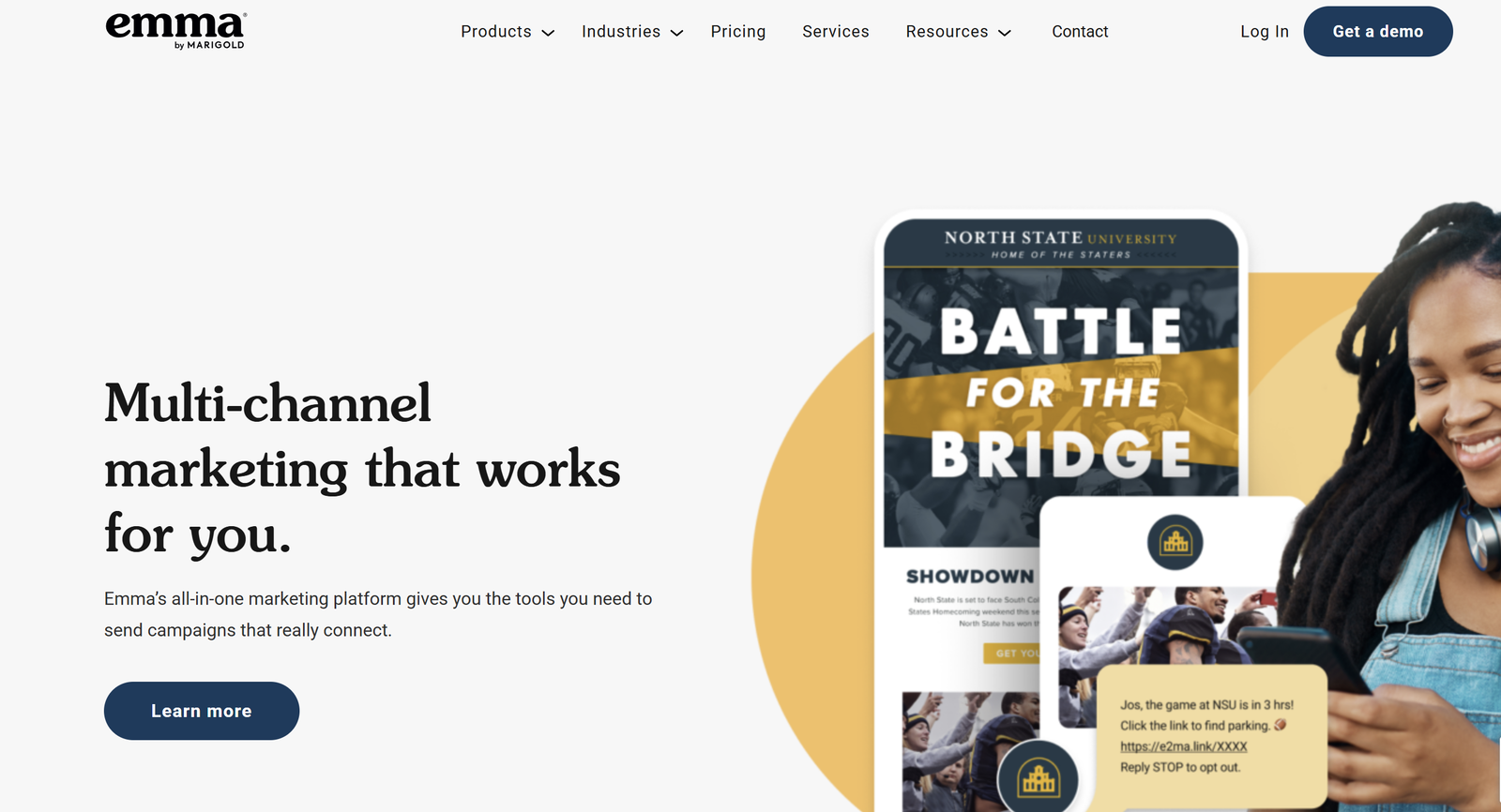Emma Email Marketing Review 2025
White-Label Email Automation Platform for Agencies & Businesses
Full Q&A Analysis of Emma’s Features, Pricing, Integrations & White-Label Potential
What is Emma and who is it for?
Emma is a cloud-based, white-label-ready email marketing and automation platform built for digital agencies, multi-location brands, universities, nonprofits, and growth-focused businesses that need scalable, branded email programs. It delivers drag-and-drop campaign building, advanced segmentation, behavioral automation, and robust reporting to help marketers deepen engagement across large or distributed audiences.
What is the overall rating and summary of Emma?
Overall Rating: 8.3/10
✅ Brand: 8/10
✅ White-Labeling: 7/10
✅ Features: 8/10
✅ Lead Gen: 7/10
✅ Support: 7/10
✅ Integrations: 9/10
✅ Scalability: 8/10
✅ Pricing: 6/10
✅ White-Label Services: 7/10
✅ Roadmap: 7/10
Emma stands out for its brand-control HQ architecture, deep integration library, and audience segmentation power, although its above-average pricing and limited live-support channels keep it from the top tier.
How does Emma present its brand and visual identity?
Emma’s interface is centered on a clean, intuitive drag-and-drop editor featuring mobile-responsive templates, customizable style guides, and section-locking to preserve brand consistency across sub-accounts—ideal for franchises and campuses. Recent updates enable marketers to store multiple brand identities within a single account and enforce color, font, and logo standards automatically, ensuring seamless brand governance across distributed teams.
What are the white-labeling capabilities of Emma?
Agencies can remove all Emma branding, host client logins on a custom domain, and apply private styles so every touchpoint reflects their own brand. The tiered “HQ” structure empowers parent accounts to govern templates while local teams work under the agency’s label. However, full private branding requires at least the Essentials plan or higher.
Which core features and functionalities set Emma apart?
Drag-and-drop email and landing-page builder with dynamic content blocks.
Behavioral automation journeys triggered by sign-ups, purchases, or custom events.
Advanced audience segmentation and A/B/C testing for subject lines and content.
Real-time analytics dashboard with device, click-map, and Mailing Score insights.
Open API (180 calls/minute) plus Zapier, Tray.io, Salesforce, Shopify, and 500+ native integrations for data sync.
How does Emma support business growth and lead generation?
Built-in signup forms, landing pages, and SMS add-ons make it easy to capture leads; segmentation and personalization nurture prospects through automated drip series. Comparative reporting pinpoints the highest-converting content, helping agencies refine campaigns and upsell clients on advanced journeys.
What support options are available to users?
All paid tiers include email and phone support, access to a comprehensive knowledge base, on-demand videos, and live webinars. Higher plans add 1-to-1 onboarding and strategic guidance, but there is no ticket portal and chat replies are primarily bot-driven—a drawback noted by reviewers.
How well does Emma integrate with other tools?
Emma offers direct connectors for Salesforce, Shopify, Mindbody, Smartwaiver, OptimizePress, and an SFTP option, while Zapier extends connectivity to 500+ apps. Developers can leverage a RESTful API with language wrappers on GitHub for custom workflows and integrations.
Is Emma scalable for growing businesses?
The HQ tiered-account model allows organizations to add unlimited sub-accounts, lock brand assets, and centrally report on performance—supporting multi-department and multi-location expansion without losing governance. API rate limits and a reliable cloud infrastructure ensure high-volume sends are handled smoothly.
What is the pricing structure and how does it compare to competitors?
Lite: $99/month for up to 10,000 contacts—core editor, segmentation, A/B tests.
Essentials: $159/month—adds automation builder, landing pages, SMS, private branding.
Teams: $249/month—tiered accounts, approvals, SSO, asset sharing.
Corporate: Custom quote for higher contact counts and enterprise features.
Emma’s entry price is roughly 4–5× higher than the category average of $17/month, positioning it alongside premium rivals like HubSpot or Campaign Monitor, rather than freemium options such as Mailchimp.
What profit opportunities are there for agencies through white-label reselling?
Agencies can margin Emma’s annual contracts, bundle email automation with strategy services, and upsell clients on HQ sub-accounts, SMS, and creative support. Private branding secures agency visibility, while centralized analytics simplify client reporting, reducing fulfillment hours and boosting profitability.
How transparent and innovative is Emma regarding updates and its future roadmap?
The public “What’s New” feed highlights quarterly feature drops—recently, multi-brand style guides and enhanced automation branching. While Emma shares release notes openly, long-term roadmap details are limited to partner briefings, giving it moderate transparency compared with SaaS peers that publish full public roadmaps.
What practical recommendations are there for digital marketing agencies using Emma?
Start on the Essentials tier to unlock private branding and automation, then graduate to Teams/HQ as client count grows.
Use section-locked templates to allow juniors to build campaigns without risking off-brand designs.
Connect Emma to your CRM via Zapier or the native Salesforce connector to enrich segments with deal data and trigger win-back automations automatically.
What is the final verdict and overall rating for Emma?
Emma scores 8.3/10 for agencies seeking a scalable, brand-controlled email platform with deep integrations and solid automation. It is best suited to multi-location companies and white-label resellers that value governance and design consistency over rock-bottom pricing.
